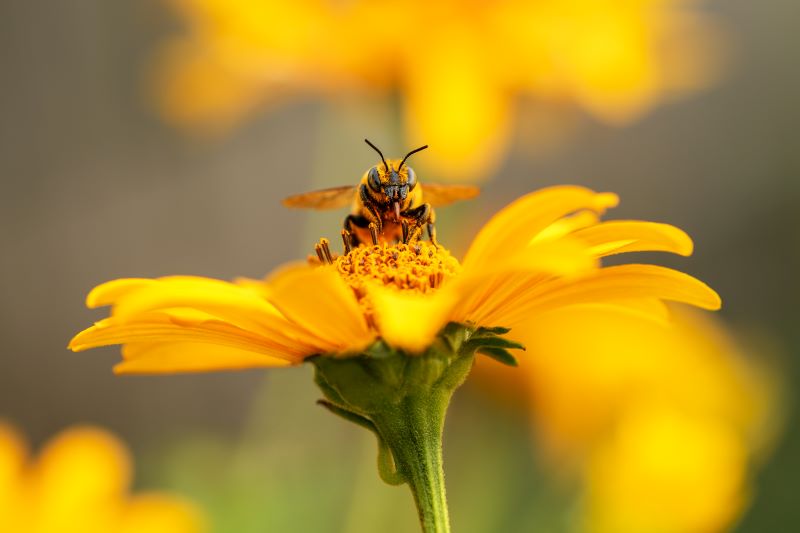Why Are Bees Important to the Environment?
- Categories:
- Climate Change
- Nature

Why are bees important?
They are believed to be the most effective pollinators
Although bees are not the only pollinators, a group that includes flies, wasps, beetles and butterflies, they are widely considered to be the most effective. This is essential for maintaining our environment and life on Earth – they pollinate the food we and other species need to survive, and pollinate many of the trees and flowers that provide habitats for wildlife and remove carbon dioxide from the atmosphere.
They are essential for the production of many plants/ crops
Since they are such effective pollinators, bees are able to ensure the production of the food we need to survive. Everyone knows that they produce honey, but their value is far more than that! It is estimated that bees and other pollinators pollinate nearly three-quarters of plants that produce 90% of the world’s food.
They preserve biodiversity and signal a healthy environment
Because bees play such a vital role in pollination and food production, they are vital for the preservation of biodiversity and healthy ecosystems. They are also a key indicator of the condition of the environment. The number of bees and their development and health can signal when something is wrong and when action is needed to repair or preserve certain elements of the environment.
What is threatening bees?
Bees are extremely important for our survival on planet earth, but they are sadly being threatened by a number of factors.
Habitat loss
Areas that bees would typically call home, such as hollow trees, wildflower meadows and other areas abundant in flowering plants, are being destroyed by urban developments and invasive farming methods.
Pesticides
As their name suggests, pesticides are designed to kill pests. However, they are strong, toxic substances that can have negative effects on those insects that we should be encouraging too, primarily bees. Bees can ingest pesticides during pollination which can damage their central nervous system.
Invasive species
Invasive species are those that aren’t native to a particular area or habitat but have started to live there. Not only do they compete with native species for resources, but they can also pose a violent threat. The Asian hornet, for example, can eat honey bees!
Climate change
The final threat is in part linked to the others but deserves a mention in its own right. Bee behaviour is disrupted by the extreme weather conditions caused by climate change and the shifting of the seasons, which can prove deadly.
How can we help bees?
It is essential that we try to preserve our bee populations where possible and there are some actions that you can take to help.
Plant wildflowers and bee-friendly flowers
This has become a talking point in garden design, but in order to encourage bees to thrive, we need to plant new wildflowers to make up for those that have been destroyed! The RSPB has a fantastic guide to bee-friendly plants and flowers for different seasons to get you started.
Some people are also taking part in ‘No Mow May’ this month to encourage the growth of wildflowers for bees.
Provide shelter for bees
You can also help bees in your garden by providing them with a space to nest and hibernate. You can create your own, or many places are now selling ready-made “bee hotels” which can be hung in a sunny and sheltered spot in your garden.
Stop using pesticides
While much of the pesticide use that is killing bees is being done on a larger scale through agriculture, you can stop using them in your own garden to help bees! You can also keep an eye out for any petitions that you can sign to stop pesticides being used on a larger scale – recently, for example, thousands signed a petition against the UK government’s emergency authorisation of bee-killing pesticide.
Petition governments to commit to biodiversity measures
While we’re on the subject of petitions, you can also campaign for politicians around the world to commit to biodiversity measures that will help bees on a large scale. One example is the Stand Up for Nature campaign by WWF.
Fight climate change as much as we can!
As we’ve already mentioned, climate change is a major factor threatening bees. We must all do as much as we can to fight climate change and support the causes that are championing climate action.
One small change you can make is to switch to SearchScene. We donate 95% of our profits to charities that work on climate-related issues.










